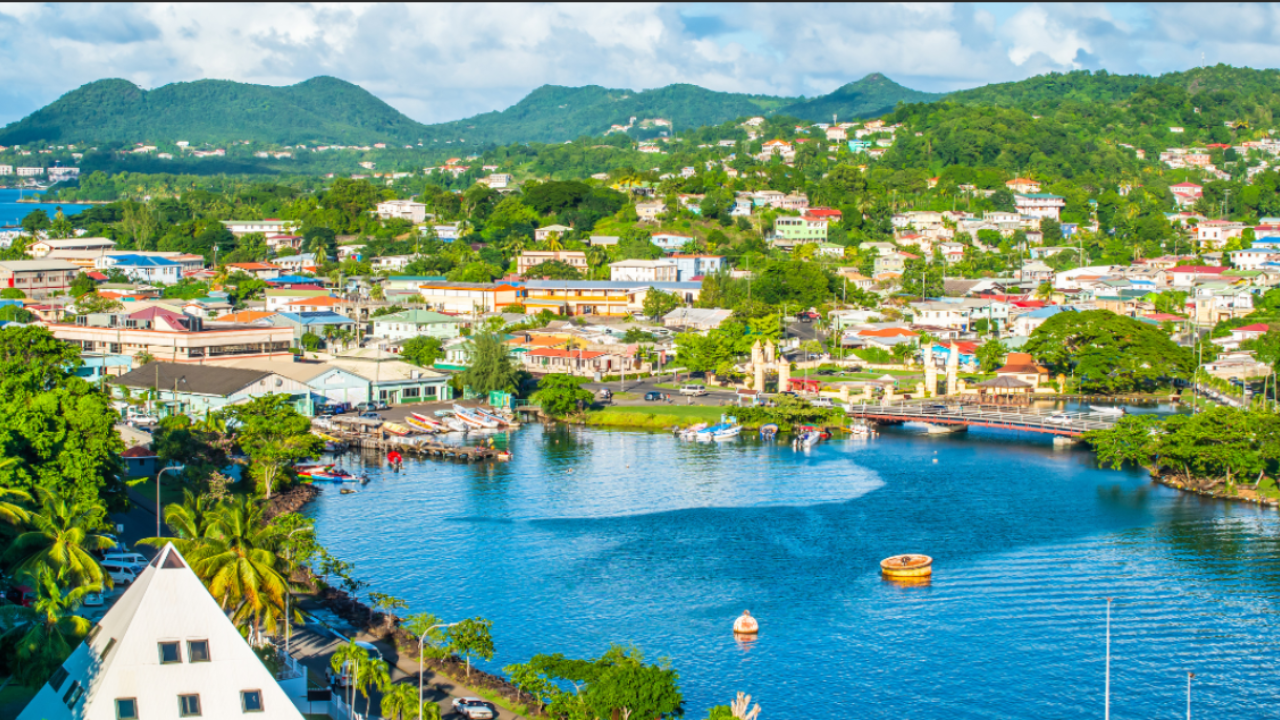History and Current CBI Programs in the Caribbean
5 Mins Read
Published on: 31 March 2025
Last Updated on: 01 April 2025

toc impalement
Investment in citizenship (IBC) programs, which most Caribbean islands offer, have become crucial revenue-generating avenues for many nations in such a short time.
It ideally allows foreigners to take up the citizenship of the islands in exchange for specific cash contributions to the economy, usually in the forms of government-approved donations, real estate, or investment in a business.
Gradually, these programs have evolved and changed in accordance with the economy and regulation changes worldwide.
History of CBI Programs in the Caribbean
Citizenship by Investment (CBI) programs’ origins go back to the Caribbean, where they were born out of economic necessity. Understanding how these global initiatives impact businesses and individuals offers a fresh perspective on international development.
Early Beginnings
The history of Citizenship by Investment in the Caribbean region started in 1984, when St. Kitts and Nevis, transitioning from an economy reliant on sugar exports, sought alternative ways to attract foreign capital.
The Caribbean was the birthplace of Citizenship by Investment, and St. Kitts and Nevis were the first nation to implement a CBI program, launching it in 1984. The act had been formulated to enhance foreign direct investment and economic growth- the closure of the sugar industry saw this initiation.
Other nations in the Caribbean have been creating Citizenship-by-Investment programs modeled on the successful programs of Saint Kitts and Nevis since 1984. This program has been critical —as a source of revenue—in underpinning the development of infrastructure, tourism, and social programs in these small island economies.
Expansion and Regulation (1990s – 2010s)
It was during the 1990s and 2000s that CBI programs began getting common. Their worth was scaling up in direct relation to demand for second passports globally. Dominica introduced its CBI scheme in 1993 while Grenada launched its own in 1997, only to relaunch its program in 2013. The Caribbean nation of Antigua and Barbuda was last to join in the game of investment migration competition at the entry of the year of 2013, while Saint Lucia introduced theirs on June 17, 2016.
They supposedly brought in economic benefits to the said nations but stirred up worries regarding due diligence, transparency, and international watchdog scrutiny. Governments thus incorporated stricter vetting measures and regulatory frameworks plus international cooperation measures to prevent their misuse by criminals and politically exposed people.
Recent Developments and Challenges (2020s – Present)
These days, one has to admit that the sharp international focus on CBI schemes has been intensified, especially from Europe and the USA. The EU raises security concerns about direct citizenship granted through accelerated routes, while the USA enjoins Caribbean countries to ensure rigorous due diligence procedures.
Most countries across the Caribbean region have tightened their background checks and raised their minimum investments to improve their credibility. However, these programs seem affected by almost similar pressing issues of transparency, potential for money laundering, and diplomacy with foreign governments.
Current CBI Programs in the Caribbean
As of today, five Caribbean nations offer CBI programs: St. Kitts and Nevis, Dominica, Grenada, Antigua and Barbuda, and Saint Lucia
Antigua and Barbuda
Antigua and Barbuda’s Golden Passport program lets applicants either donate US$230,000 to a state fund or invest in real estate starting at US$325,000. It’s a family-friendly option, with business investment opportunities and both joint and individual options available. The process is simple, typically taking 3-4 months. New citizens must spend just five days in the country within the first five years.
- Since 2013.
Investment types:
- Minimum $100,000 donation to the National Development Fund
- $200,000 minimum in Government-approved real estate
- Invest approved business at least $1.5 million.
- The processing time would generally be 3-5 months.
- Core Benefits: Visa-free to less than 150 countries, family-friendly (dependents included), 5-day residence requirement.
Dominica
Dominica’s Citizenship by Investment program allows you to donate US$200,000 or make an equivalent real estate investment. The process takes 3-4 months, and you don’t need to live in the country, making it a hassle-free option.
- Since 1993.
Investment types:
- $100,000 minimum to the Economic Diversification Fund (EDF)
- $200,000 minimum for investment in real estate approved by the Government.
- Process could be 3-4 months.
- Key advantages- Visa-free access to over 145 countries, the lowest fee anywhere, and politically stable.
Grenada
Grenada’s citizenship program provides visa-free or visa-on-arrival access to over 140 countries. To qualify, you can donate US$235,000 or invest in real estate starting at US$270,000. Applications are processed smoothly in 4-6 months, and investments are made only after approval. Physical residency is not required.
- Since 1997 (reintroduced since 2013).
Investment types:
- Donate a minimum of $150,000 to the National Transformation Fund (NTF)
- Minimum $220,000 investment in real estate approved by the Government.
- Processing takes 4-6 months.
- Benefits: E-2 Visa Treaty with USA (which gives residency to business investor), visa-free access to China and resident status all over.
Saint Lucia
Saint Lucia’s Citizenship by Investment program allows access to over 140 countries without a visa or with visa-on-arrival. You can qualify with a US$240,000 donation or a US$300,000 real estate investment. The application process, which takes 4-6 months, has no physical residency requirement.
- Established in 2016.
Investment types:
- Minimum $100,000 donation to the National Economic Fund (NEF)
- $200,000 minimum investment in government-approved real estate
- Minimum investment of $3.5 million in business.
- Processing time- 3-4 months.
- Key Benefits: Visa-free over 140 countries, tax benefits, political and economic stability.
St. Kitts and Nevis
In St. Kitts and Nevis, you can qualify with a US$250,000 donation or a real estate investment starting at US$400,000. There’s no physical residency requirement, and approval typically takes 4-6 months.
- Established in 1984,
Investment types include:
- Donate a minimum of $250,000 to the Sustainable Island State Contribution (SISC)
- $400,000 should be the minimum amount for investment in a government-approved real estate project.
- Processing time: 3-6 months.
- Main benefits- visa-free to 150+ countries, no personal income tax, dual citizenship.
Overcoming Challenges for Future CBI Programs in the Caribbean
In as much as they herald benefits, CBI programs have various challenges to overcome:
- Global organizations have begun scrutinizing CBI programs more closely. The EU has warned of possible visa restrictions for holders of CBI passports if safety concerns continue to arise.
- As one CBI program is being imposed by those who hold the opposing view, other countries, such as Turkey, Malta, and Vanuatu, also offer investment migration modes.
- Inadequate government diligence put the programs at risk of fraudulent abuse and other crimes.
The Caribbean states are preparing to counter the following:
- Standardization of safety regulations and protocols that will lead to greater transparency and legitimacy.
- Security negotiations with international organizations aimed at maintaining visa-free status for CBI passport holders.
- Diversifying economic plans to avoid over-reliance on CBI revenue.
Final Thoughts!
The CBI programs in the Caribbean are indeed a major blessing, as these have assured the inflow of much-needed funds into small island economies.
As scrutiny and challenges to regulating these programs grow, they continue to attract global investors seeking second citizenship.
In light of the above, Caribbean nations need to negotiate a balance between economic advantages and international compliance critical to the long-term viability of their CBI programs.

















